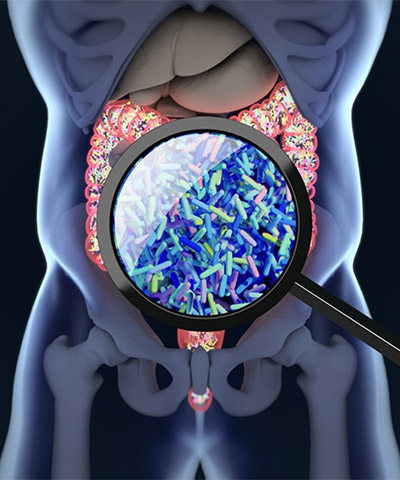Benefits of Probiotic Foods: Using good bacteria for better health

You shouldn't. “Bad” bacteria can wreak havoc on your health. Enter probiotics — “good” bacteria that help wage war against harmful microorganisms. Harvard doctors explain in Benefits of Probiotic Foods.
Don’t look now, but your gut is crawling with germs — a living colony of 100 trillion bacteria. Believe it or not, that’s around 5 pounds worth of microorganisms living inside of you.
Sounds unpleasant, no? Well, gut bacteria are normal. Called microbiota (gut flora, if you want a more pleasant-sounding term), gut bacteria play a key role in your health. You need bacteria — at least the good bacteria. Bad bacteria can compromise your gut health and cause problems with your digestive, heart, respiratory, and bone health.
Luckily, there’s a way to fortify your good bacteria — to empower them in the fight against health-threatening microorganisms: probiotics. But most people aren’t fully up to speed on what probiotics are. How to get them into your body. How they work.
In Harvard Medical School’s guide Benefits of Probiotic Foods, you’ll learn about the ongoing battle against bad bacteria — a battle happening in your gut right now, as you read this.
If you order our exclusive e-publication today, you’ll be taking an important first step in getting your gut health on the right track.
Think of it this way: If you don’t take the time to understand how gut flora works, you can’t help yourself. Harvard’s authoritative guide simplifies the process for you.
Want optimal health?
The topic of probiotics can be confusing. Thankfully, the experts at Harvard Medical School have cleared up the confusion. Using research-driven information, Benefits of Probiotic Foods explains the link between probiotics and optimal health. And who among us doesn’t want optimal health?
Order now and discover how probiotics can play a positive role in your health. Learn about new studies exploring the role probiotics may play in treating and preventing digestive disorders. Get up to speed on research revealing the positive effect probiotics may have on heart disease... bone loss... cancer... obesity... even depression... and more!
Plus, discover in our guide the best sources for probiotics. You know about yogurt, but there are so many more foods that provide probiotic benefits.
Probiotics simplified
Just remember: While you’re trying to decide whether to order our guide, those “bad” bacteria among the 100 trillion microorganisms in your gut are just sitting there, enjoying the ride and ready to cause trouble. It’s time they met their match.
Order Benefits of Probiotic Foods now and get your gut in order!
| ✓ | Learn the secret to — as our guide’s subtitle promises — “using good bacteria for better health.” |
| ✓ | Find out why you should rethink bacteria — and how good bacteria can counterbalance the bad. |
| ✓ | Gain an understanding of how probiotics can contribute to healthy gut flora — and better overall health. |
You and your 100 trillion gut bacteria
Yes, your intestines are home to some 100 trillion bacteria. Some of those microorganisms cause sickness and serious disease — or worse. Luckily, your gut’s “good” bacteria — as found in probiotics — constantly work to counterbalance the bad.
Harmful organisms are known to compromise your gut health and cause problems with your digestive, heart, respiratory, and bone health. Probiotics help you fight back, as we’re seeing in more and more research. Learn about the probiotics advantage in Harvard Medical School’s Benefits of Probiotic Foods.
You’ll learn about:
| ✓ | Different types of probiotics |
| ✓ | The link between probiotics and cognitive health. |
| ✓ | How to add probiotics to your diet. |
| ✓ | The difference between probiotics and prebiotics. |
| ✓ | How probiotics can boost gut health — and your overall well-being. |



